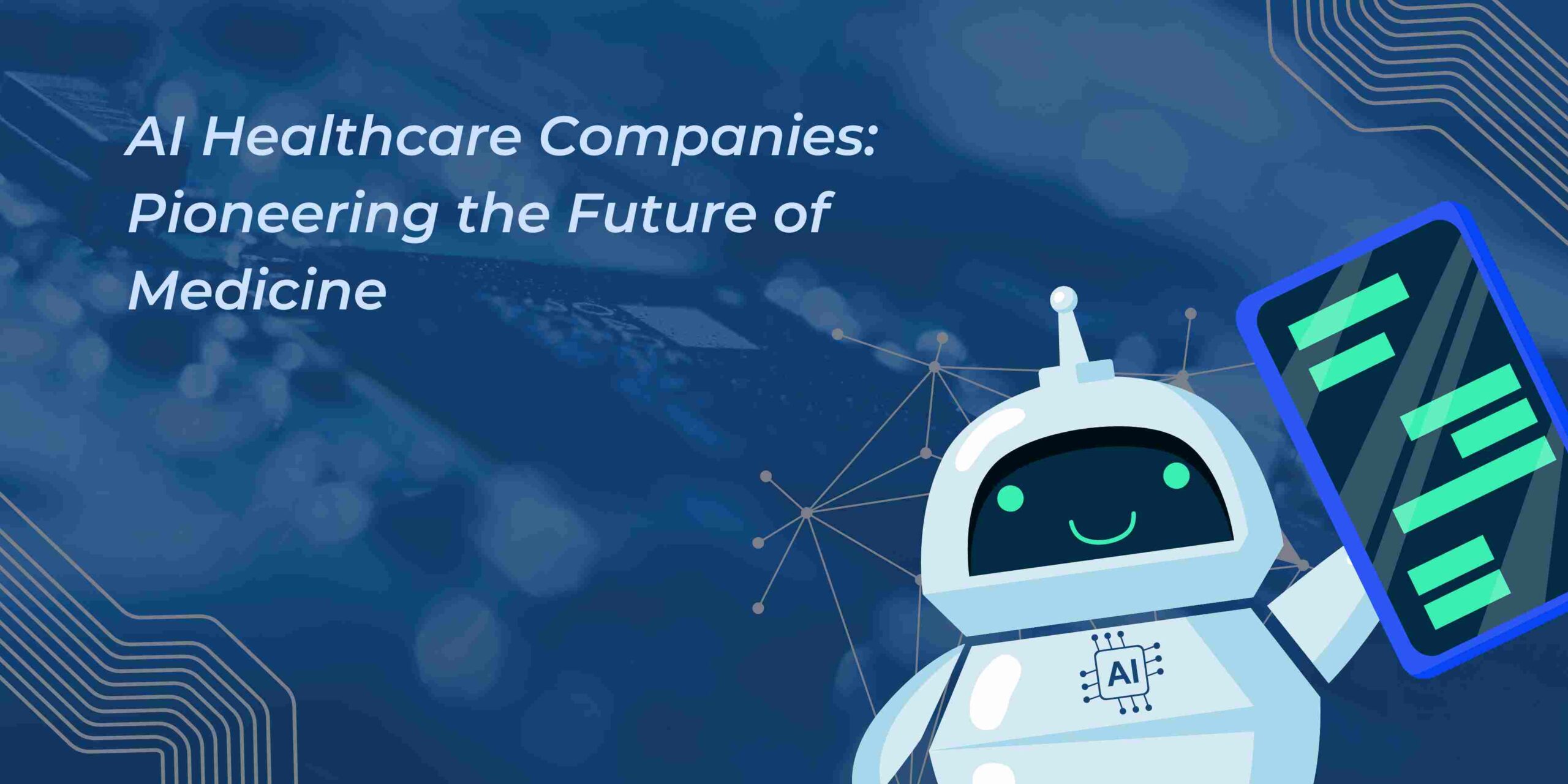Introduction
Artificial Intelligence (AI) is reshaping the healthcare industry, enhancing diagnostic accuracy, improving patient care, streamlining administrative processes, and accelerating drug discovery. Numerous AI healthcare companies are at the forefront of these innovations, developing solutions that revolutionize how medical professionals interact with patients and data.
In this article, we will explore some of the most prominent AI healthcare companies, their contributions to the industry, popular AI healthcare solutions, challenges they face, and future trends. This comprehensive guide aims to provide valuable insights into how AI healthcare companies are changing the landscape of modern medicine.
What Are AI Healthcare Companies?
AI healthcare companies are organizations dedicated to developing and deploying artificial intelligence technologies to enhance various aspects of healthcare. These companies leverage advanced machine learning models, natural language processing (NLP), computer vision, robotics, and big data analytics to offer innovative solutions for diagnosis, treatment, patient monitoring, and administrative efficiency.
Key Areas of Focus
- Medical Imaging and Diagnostics: AI-powered tools for analyzing medical images such as X-rays, MRIs, and CT scans.
- Drug Discovery: Accelerating the process of identifying effective drugs through predictive analytics and simulation models.
- Clinical Decision Support Systems (CDSS): Providing data-driven insights to assist healthcare professionals in making better decisions.
- Patient Monitoring: Utilizing wearable devices and remote monitoring systems to enhance patient care.
- Natural Language Processing (NLP): Extracting valuable insights from electronic health records (EHRs) and other unstructured data sources.
Leading AI Healthcare Companies
Several companies are pioneering AI technologies in healthcare. Below is a list of some of the most innovative and impactful companies in the field.
1. Google Health
Google Health is utilizing AI to improve patient outcomes through initiatives such as medical imaging analysis, natural language processing, and predictive analytics. Its collaboration with DeepMind has led to breakthroughs in early diagnosis of diseases like breast cancer and diabetic retinopathy.
2. IBM Watson Health
IBM Watson Health focuses on providing AI-driven solutions for oncology, genomics, drug discovery, and clinical trial optimization. Its AI platform Watson is designed to assist healthcare providers in making data-driven decisions.
3. Microsoft Healthcare
Microsoft is integrating AI with cloud-based solutions to enhance patient care and clinical research. Its Azure AI tools provide comprehensive analytics and diagnostic assistance for various healthcare applications.
4. PathAI
PathAI specializes in using AI for diagnostic pathology. By enhancing the accuracy of disease detection, particularly in cancer diagnosis, PathAI aims to reduce human errors and improve patient outcomes.
5. Tempus
Tempus combines AI with genomic data to offer precision medicine solutions. Its focus is on enhancing clinical decision-making for oncology and other complex diseases.
6. Zebra Medical Vision
Zebra Medical Vision provides AI-driven medical imaging solutions for identifying diseases such as osteoporosis, liver disease, and cardiovascular conditions.
7. NVIDIA Healthcare
NVIDIA’s AI computing platforms are being used to power medical imaging, drug discovery, genomics, and patient monitoring solutions. Its GPUs are essential for training deep learning models in various healthcare applications.
8. Babylon Health
Babylon Health is transforming healthcare delivery through AI-powered chatbots, virtual consultations, and remote monitoring. Its goal is to make healthcare accessible and affordable for everyone.
9. Aidoc
Aidoc focuses on using AI to assist radiologists in identifying critical conditions through advanced imaging analysis. Its tools are particularly effective in emergency settings.
10. Qure.ai
Qure.ai specializes in developing AI-driven diagnostic tools for radiology. Its algorithms are designed to detect abnormalities in chest X-rays, head CT scans, and other imaging modalities.
Challenges Faced by AI Healthcare Companies
Despite the rapid advancements, AI healthcare companies encounter several challenges.
Common Challenges
- Data Privacy and Security: Protecting sensitive patient data from breaches and misuse.
- Regulatory Compliance: Meeting stringent legal requirements for deploying AI solutions in healthcare.
- Bias and Fairness: Addressing biases present in training datasets to ensure ethical AI practices.
- Scalability: Ensuring AI solutions can be scaled effectively across diverse healthcare settings.
- Interpretability: Making complex AI models understandable and explainable to healthcare professionals.
Future Trends in AI Healthcare Companies
The future of AI healthcare companies looks promising, with several trends expected to shape the industry.
Emerging Trends
- Explainable AI (XAI): Increasing transparency and accountability in AI systems.
- Integration with Wearable Devices: Providing real-time monitoring and analysis of patient health.
- Personalized Medicine: Enhancing treatment plans based on individual genetic and environmental factors.
- Collaborative AI: Enhancing human-AI collaboration for improved decision-making.
- AI-Driven Telemedicine: Making healthcare services accessible to remote and underserved populations.
Conclusion
The landscape of AI healthcare companies is constantly evolving, with groundbreaking technologies enhancing patient care, diagnostics, and treatment. Despite challenges related to data privacy, regulation, and bias, AI companies continue to innovate and push the boundaries of what is possible.
Understanding the contributions of these companies provides valuable insights into the future of healthcare. As AI technologies continue to advance, their impact on the medical field will only grow stronger, leading to improved patient outcomes and streamlined healthcare processes.







